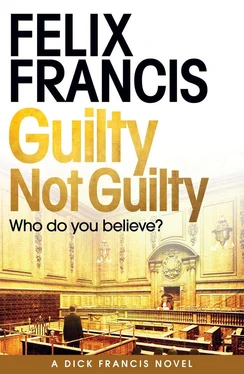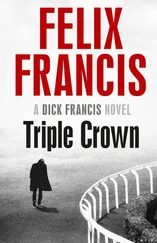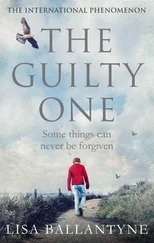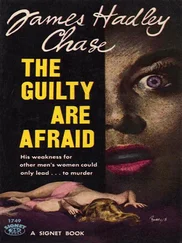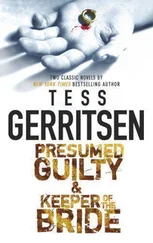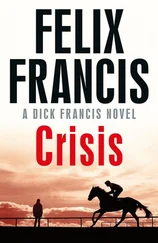How delicious , I thought. Joe was set to be undone by a ruling from his own beloved High Court.
‘Hence,’ James laughed nervously once more, ‘I am quite certain Mr Bradbury’s challenge will fail on every count.’
‘How on earth did Mary think all that up?’ I asked. ‘You know, the second solicitor, the doctor tests, the golden rule, the Mental Capacity Act, the Royal Courts of Justice thing and all that other legal stuff.’
He laughed again. This time without the nervousness. It was as if he was quite enjoying himself.
‘Oh, yes, well,’ he said. ‘That may all have been at my suggestion after she explained what she was going to do. We agreed that we should apply the three tests from the judgement in the case of Banks v. Goodfellow way back in 1870. The tests may be a hundred and fifty years old but the High Court ruled only last year that they are still relevant. First, the testator must understand the nature of the will and its effect. Second, the testator must have an understanding of the extent and value of her property, and third, the testator must be aware of the persons for whom she would usually be expected to provide, even if she chose not to, and must be free from any delusion of the mind that would cause her reason not to benefit those people.’
Now I laughed. So it was he who was the canny old bird.
‘So what does the TEP stand for?’ I asked.
‘Eh?’
‘TEP. The letters after your name on your letterhead.’
‘Oh, yes, well,’ he said. ‘It means that I’m qualified as a Trust and Estate Practitioner, so I specialise in wills and probate.’
Oh, yes, well, more like a Totally Extraordinary Person, if you asked me.
I agreed that, yes indeed, I very much did want to appoint him to assist me in obtaining probate of Mary’s estate, and I also said that I’d get back to him about her funeral.
‘Oh, yes, well, the undertakers are rather waiting on your instructions.’
He gave me their details.
‘I’ll call them.’
‘Oh, yes, well, good idea.’
I bowed my head as a simple oak coffin was carried past me. Then I repeated the process as a second identical coffin followed it.
I had applied to the Oxford Coroner for permission to have Amelia’s body returned to me and, having consulted both the CPS and Joe Bradbury’s defence team, he had agreed.
So here I was, living a nightmare, sitting in a wheelchair inside Hanwell village church for the double funeral of both my wife and my mother-in-law.
Mother and daughter together, and with no Joe here to come between them this time.
I had asked DS Dowdeswell if it were possible to prevent Joe from attending from prison and he had readily agreed to ensure it, citing the likelihood of a public disturbance as the official reason. And it was quite possibly a true one too.
I could clearly remember back to the day I had collected my car from the local pub car park, when Mark Thornton had told me that Amelia had been very popular in the village and that feelings were running high. At the time, their anger had been directed squarely at me as the prime suspect but now, with Joe Bradbury awaiting trial for her murder, the ire of the locals was thankfully aimed at him.
Not that many of the village folk had been round to apologise for jumping so quickly to the wrong conclusion. In fact, only Nancy and Dave of my neighbours had been to see me during the twelve long lonely days since I’d arrived home from Stoke Mandeville, and I was not sure how I would have coped without them.
I had found that living in hospital for an extended period, with its strict daily regime, was a perfect way of shutting out the real world, and the agonies that came with it.
Wake, wash, dress, eat breakfast, go to the gym for physiotherapy, have lunch, return to the gym for walking practice, have tea, watch TV, hot milk drink, undress, go to bed, sleep — every day the same. It numbed the mind. Even Christmas had come and gone without any noticeable change other than the physiotherapy stopped because the staff were off work enjoying themselves.
But I’d gone to the gym anyway, on my own.
Routine was, well... routine. And comforting.
Douglas had been down from London a few times to see me, and my parents had even made the long journey across the international border from Wrexham to Aylesbury but, overall, my mental life had stood still for the seven weeks I was there.
Fortunately, my physical side improved gradually such that, by the time I was discharged, I could walk a short distance with only the aid of crutches, and even climb a step or two before my legs began to shake uncontrollably and I had to sit down again. But it was enough, and I had finally convinced the doctors I was well enough to go home.
Coming back to my empty house in the dead of winter, however, had been much harder than I had imagined, both physically and mentally.
It was the human-to-human interaction, both with the staff and with the other patients, that I missed the most. For weeks, I had done my utmost to get myself out of hospital and now all I wanted to do was to go back in.
I also found that I had to do for myself all the things that had previously been done for me. Simple tasks like turning on lights or drawing the curtains required a huge effort, not to mention the much more complicated pursuits of washing my clothes and preparing my own food.
The supply of microwaveable frozen ready meals, which I’d so carefully selected at Waitrose on my big food-shopping trip, had disappeared on the back of the recovery truck along with Amelia’s broken and dismembered Fiat 500.
Hence the cupboards were still almost bare.
And, of course, to top it all, there was always the problem of the stairs.
I had lied to the doctors, telling them I lived in a bungalow, just to ensure they would let me go. But now the reality of the undertaking faced me. Not just a single tread or two as I had been practising on, but a whole flight of them, twelve in all.
They might as have well been the north face of the Eiger.
On my first two nights back in the house, I had addressed all of these difficulties by simply sitting hungrily in the dark, and then sleeping fully dressed on the sofa in the sitting room with the curtains wide open.
Thank goodness for remote-controlled television sets. As far as I was concerned, the inventor should have been awarded a Nobel Prize.
But then, on the third morning back, Dave and Nancy had come to my rescue.
Nancy had fed me while Dave had carried one of the twin beds down from the guest room and set it up in my study.
‘Only a temporary measure, mind,’ he’d said. ‘We want you up those stairs in no time.’
I had smiled at him and almost cried at their kindness.
But, all the while, and in spite of Dave and Nancy’s best efforts, the greatest agony was the loneliness and the unspeakable hole that remained in my heart.
Even after more than three months, I found myself bursting into tears for the smallest of reasons, maybe catching a glimpse of the photo of Amelia pinned to the noticeboard in the kitchen, or coming across a lip salve, hidden between the seat cushions on the sofa.
Both were more than enough to turn on the taps and leave me sobbing.
The church was packed, with even the standing room at the back overflowing out through the doors into the graveyard.
My parents, together with my brother Edward and his wife Stella, had made the journey from Wales, and Douglas had come down from London.
DS Dowdeswell and DCI Priestly were both present, representing Thames Valley Police in their dress blue uniforms, as were Fred and Jill Marchant, Mary’s current neighbours, and Gladys and Jim Wilson, her former ones from Weybridge.
Читать дальше
